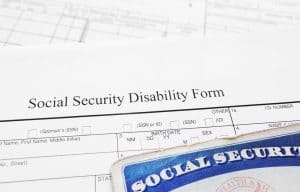However, oftentimes it can be more difficult to get disability benefits for mental disabilities. One of the biggest reasons for this is that mental illnesses are notoriously difficult to diagnose, measure, and objectively assess. Further, disability examiners are often well versed in understanding physical disabilities but may have a limited understanding of mental illnesses.
Often mental illnesses present as cyclical in nature. This may mean that an individual experiences certain periods when they may seem “cured,” when they are actually presenting symptoms of a certain stage in their mental illness.
40+ years of experience from strong, knowledgeable, compassionate attorneys.
Start A Free EvaluationOn a very basic level, to be eligible to receive disability benefits, you must prove that your mental illness is severe enough that it prevents you from being able to hold a full-time job for at least one year. The evidence of this comes primarily from medical examinations and records, but includes other information as well.
We know you’re hurting. We can help. Free case evaluations, home and hospital visits.
Contact Us Now For HelpThe application process for SSD benefits can be complex and the majority of initial applications are denied. If your initial application for disability benefits for your mental illness has been denied, you are able to appeal the decision. However, the appeal process can be even more confusing, as there are time limits to worry about.
You need an attorney with the experience and dedication to give your case the care it deserves.
Start A Free EvaluationIf you are trying to apply for SSD benefits for your mental illness or you have been denied and want to appeal, it can be very helpful to have an experienced attorney on your side. At Berger and Green, we have helped hundreds of clients in similar situations. For 40 years, we have worked on Social Security disability cases for clients with debilitating mental illnesses. If you need help, please don’t hesitate to call us at 1-800-999-2626. You can talk to us for free. At Berger and Green, we are fighting for your future.









